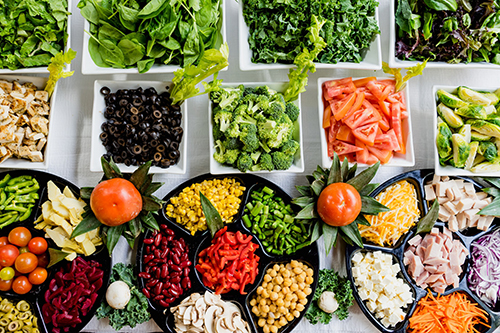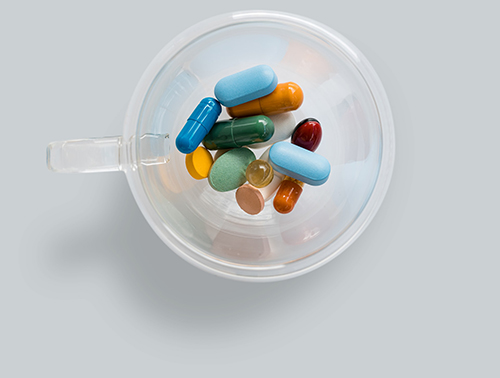How To Improve Vitamin Deficiency For Women
Women tend to lack specific, yet extremely common minerals and vitamins, such as Vitamin D deficiency from inadequate sunlight exposure or Calcium loss during the natural aging process. Vitamin deficiency is especially true for women during pregnancy, or if they have dietary restrictions or for postmenopausal women. Experts agree that the best way to recoup the vitamins, minerals, and other nutrients women miss out on is from food, not supplements. A balanced diet filled with fruits, vegetables, low-fat dairy, lots of fluids, healthier oils, good proteins, and whole grains is sufficient to maintain proper nutrition. Vitamins and Minerals found in food are also better absorbed than supplements. However, given the influx of processed foods and artificial ingredients in the modern American diet, adherence to the US Dietary Guidelines is low. The CDC reports that 10% of the U.S. population have nutrition deficiencies due to eating an energy-rich, nutrient-poor diet, and physical inactivity.
How Vitamin Supplements Can Help
Nutrient deficiency predisposes a person to many chronic diseases, including type 2 diabetes, cardiovascular disease, cancer, and osteoporosis. To fill in the gaps in a nutrient-poor diet, supplements are another way to help ensure you’re getting the proper nutrients.
Healthline.com shares the following list of six vitamins and minerals women of all ages are deficient in, and where to get it.
1. Iodine
Women ages 20 to 39 tend to have lower levels of urine iodine compared to women of all other ages. Women need about 150 micrograms (mcg) of iodine in their diets every day. Without enough iodine, the body does not make enough thyroid hormones to help control metabolism and body temperature. Other symptoms include hypothyroidism, weight gain, fatigue, feeling cold all the time, and thinning hair. Iodine deficiency is especially dangerous for pregnant women and may cause intellectual disabilities in the fetus. Salt, dairy products, seafood, eggs, and grain-containing foods are all good sources of iodine.
2. Vitamin D
another common vitamin women tend to miss out on due to inadequate sunlight and because vitamin D does not naturally occur in a lot of foods. Women need Vitamin D to maintain a healthy immune system and bones. Without enough Vitamin D, women are at increased risk for poor bone health, depression, fatigue, muscle weakness, rickets (pregnant women), obesity, and type 2 diabetes. Women who are pregnant, about to become pregnant or older really need this vitamin for bone health. Women up to 70 years old need 600 international units (IUs) of vitamin D a day. This number typically goes up to 800 IUs after 70. Spending 15-30 minutes a day in the sun, salmon, orange juice, milk, egg yolk, and some fortified cereal and bread are good sources of Vitamin D.
3. Calcium
Women are more prone to getting osteoporosis as they age, making calcium a very important mineral for bone health. Calcium works in concert with vitamin D (another vitamin we lack) to help build strong, healthy bones. Often called the “silent disease”, calcium deficiency causes loss of bone mass which is not usually found until a fracture has occurred. Women are especially at risk due to their naturally smaller, thinner bones. Additionally, estrogen, a hormone that assists with bones regrowth, decreases sharply when women reach menopause. The National Osteoporosis Foundation, recommends 1,000 milligrams (mg) of calcium a day for women under 50 and 1,200 mg of calcium a day for women over 50. Dairy products, leafy greens, nuts, salmon, yogurt, tofu, and oatmeal all contain Calcium.
4. Iron
Women are vulnerable to iron deficiency due to menstruation and the body still needing to make up for that blood loss. Iron deficiency can cause anemia (low red blood cell count), extreme fatigue, shortness of breath, and dizziness. Women ages 19 to 50 need about 18 mg of iron a day (10 mg more than the recommendations for men the same age.) Pregnant women need more iron (27 mg) while women older than 51 need less (8 mg). Fortified cereal, citrus fruits, white beans, and spinach are good sources of Iron.
5. Vitamin B-12
Essential for normal blood and brain function, B12 is also important for promoting healthy digestion. While younger women are likely to get the B12 they need from food, stomach acid levels deplete after the age of 50 reducing the body’s ability to absorb B12. Deficiency of this vitamin causes anemia, fatigue, muscle weakness, difficulty thinking clearly, tingling in hands, feet, or legs. Women ages 14 and up need 2.4 mcg of vitamin B-12 a day. For pregnant women, this number increases slightly to 2.6 mcg a day. Many animal products have B-12 making this deficiency a concern for women who are vegetarians. Meat, fish, eggs, and dairy products all contain B12.
6. Folate
Also known as B-9 or folic acid, folate is essential for DNA production, developing red blood cells, and preventing anemia. Folate must work together with B12 and iron to prevent anemia. Women over 13 years old, should be getting about 400 to 600 micrograms of folate a day. Folate deficiency can cause growth problems, mouth sores, fatigue, and gray hair. Experts advise women planning to have a baby take prenatal vitamins to ensure folate levels are sufficient before conception to prevent neural tube defects, such as Spinal Bifida. Dark leafy green vegetables like asparagus, broccoli, Brussel sprouts, chickpeas, green peas, beef liver, and orange juice are all good sources of Folate.
Insurance Questions?
A healthy diet is the first step, but if you are considering taking a multivitamin or supplement, talk to your doctor. They may have recommendations on How To Improve Vitamin Deficiency For Women to ensure you are getting proper nutrients.
Stay on top of your health insurance by CALLING US at (844) 410-1320
Get affordable health insurance quotes by clicking here.
See our other websites:



